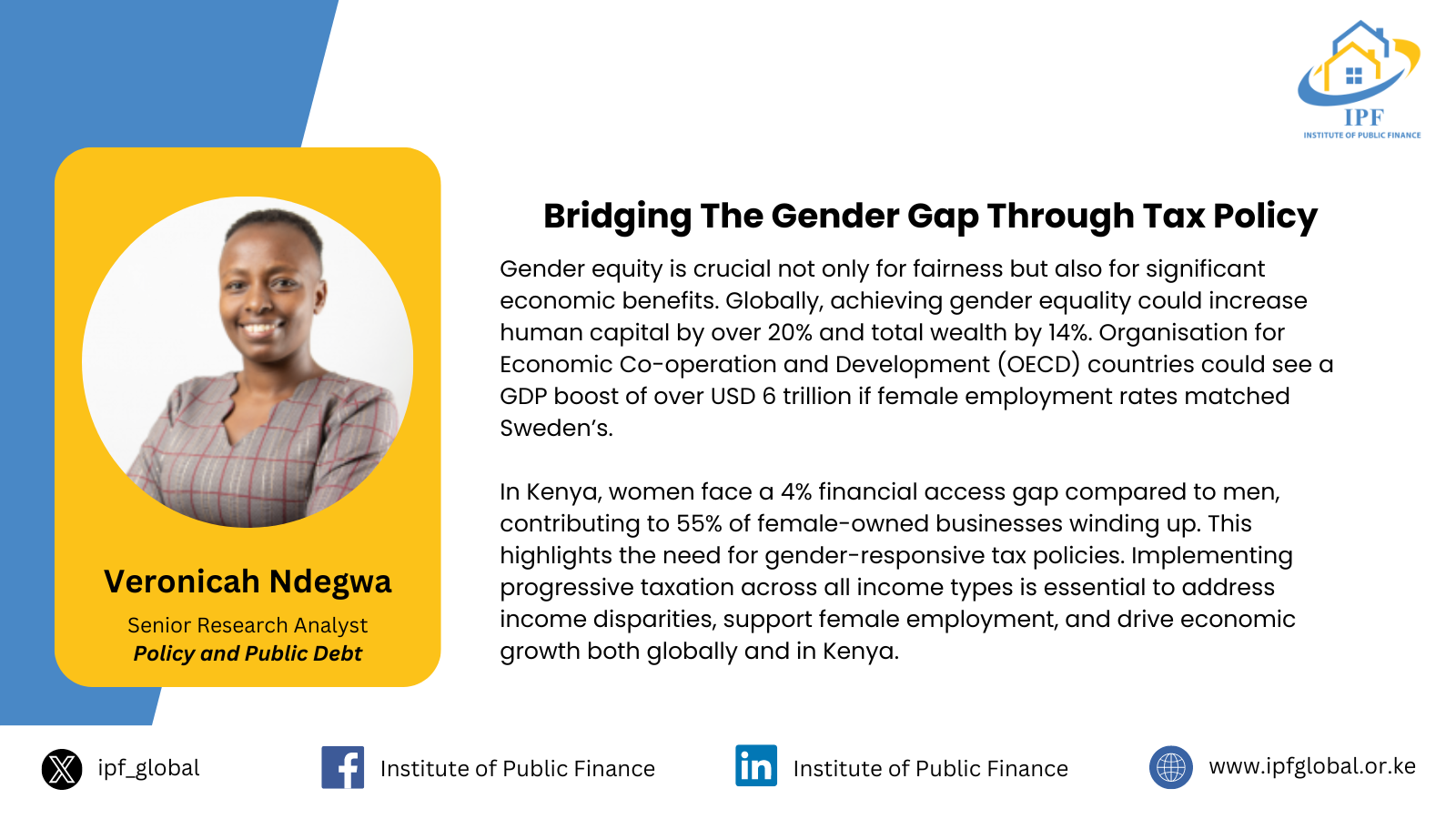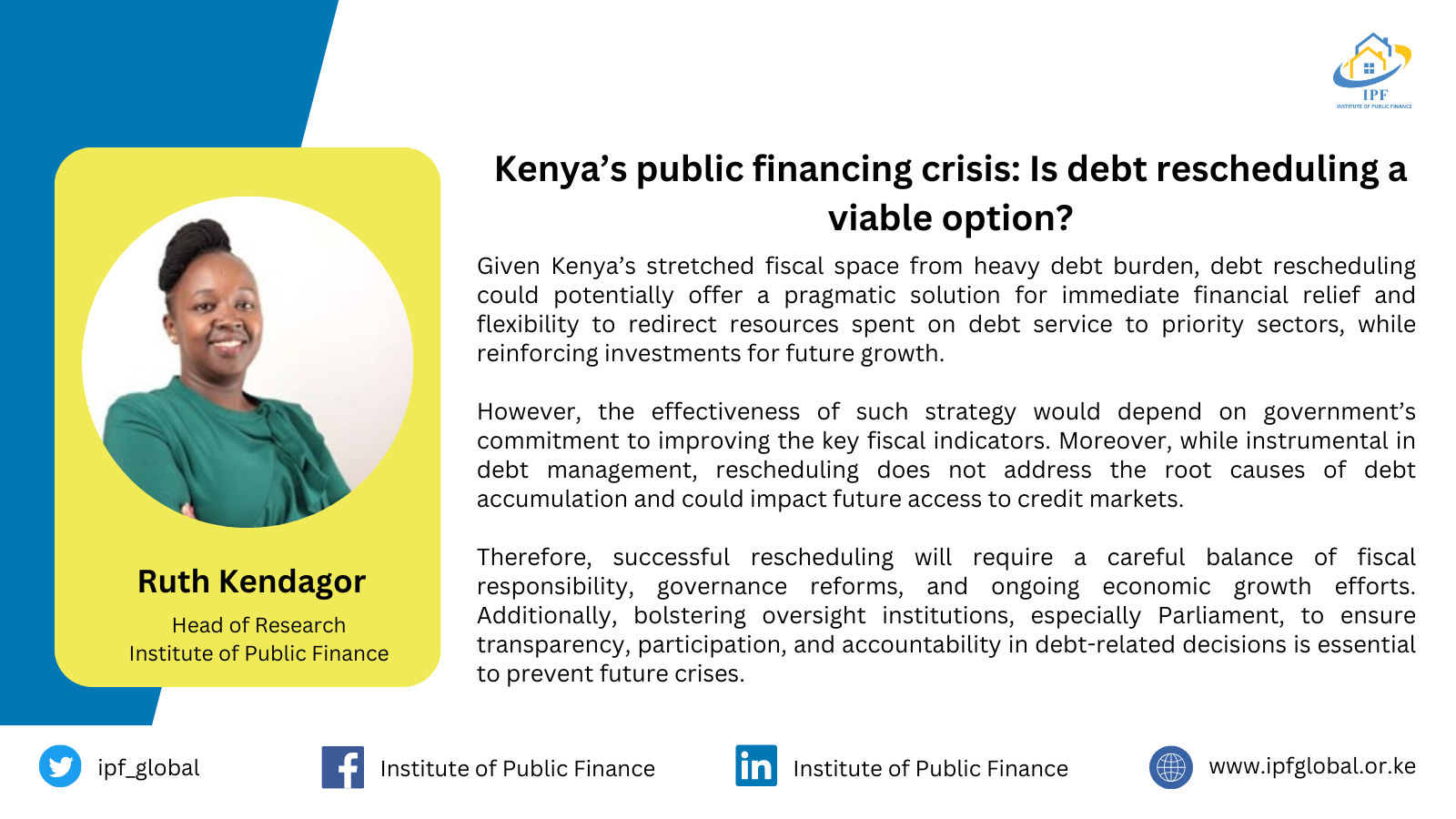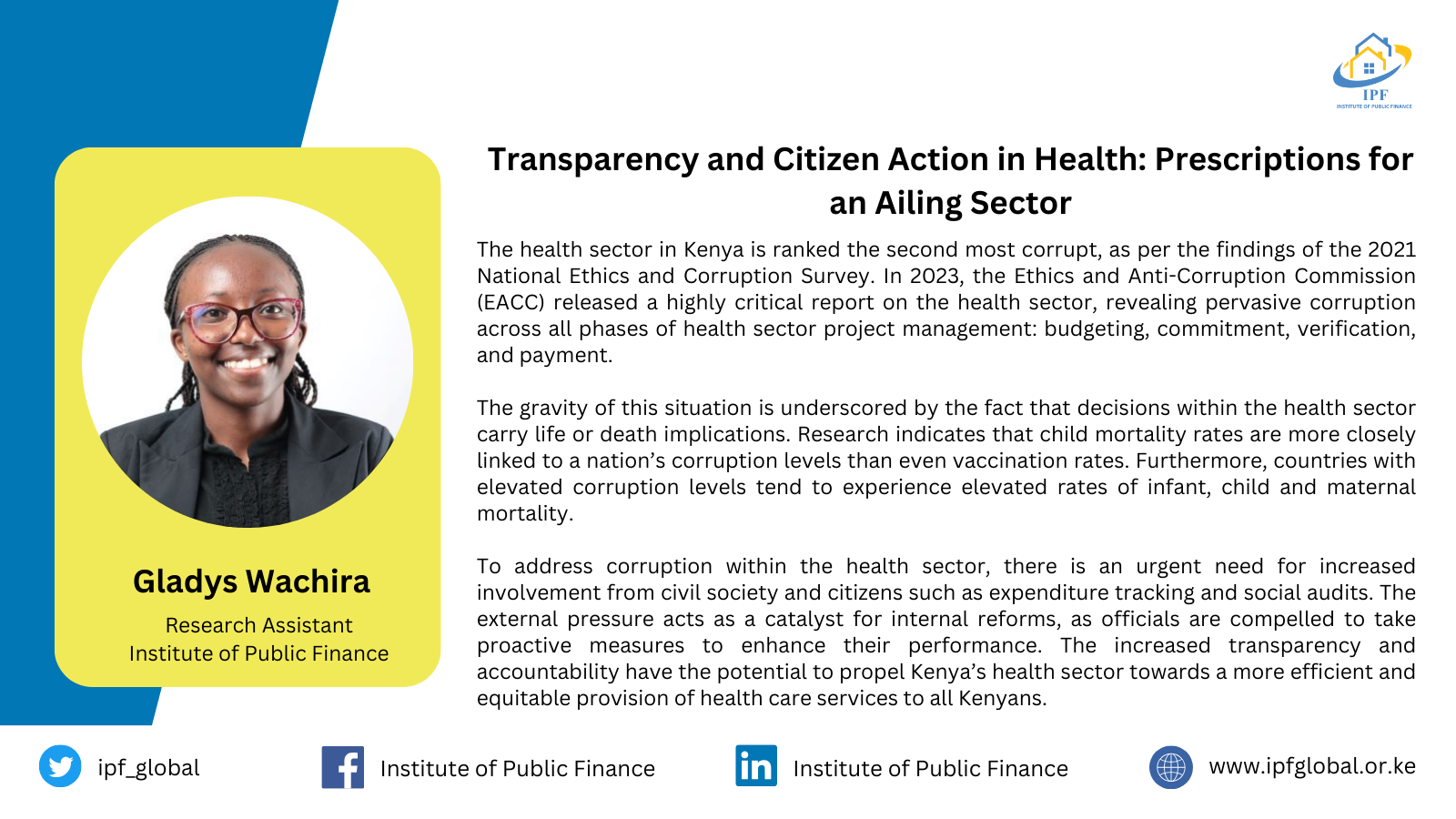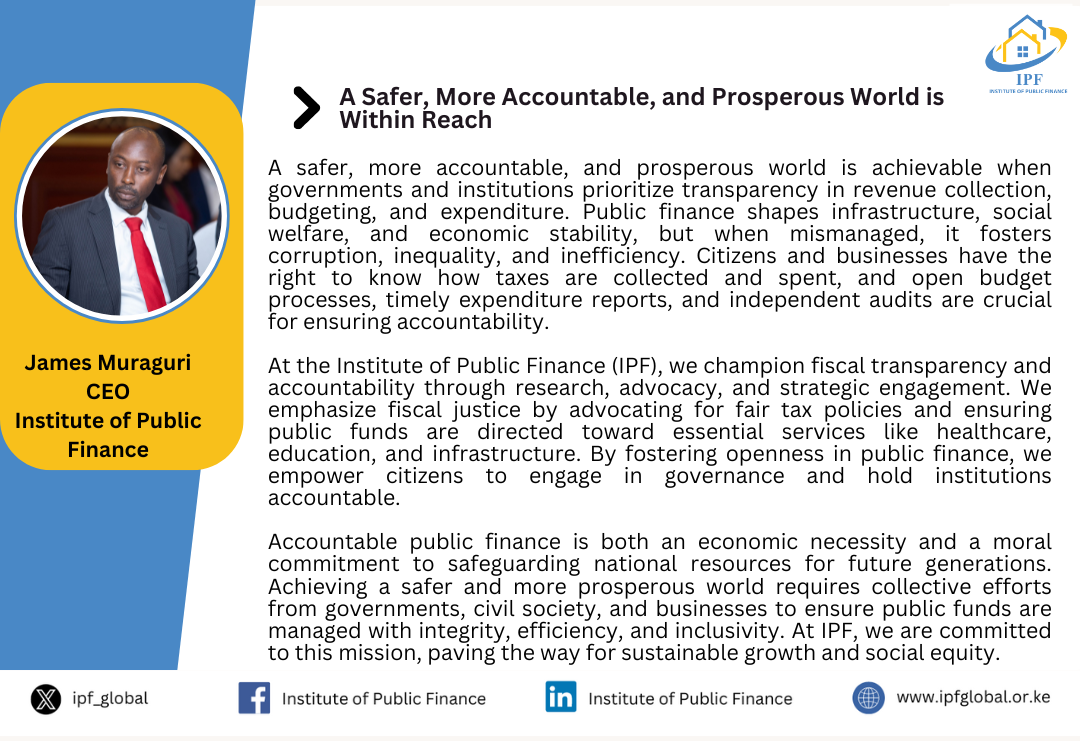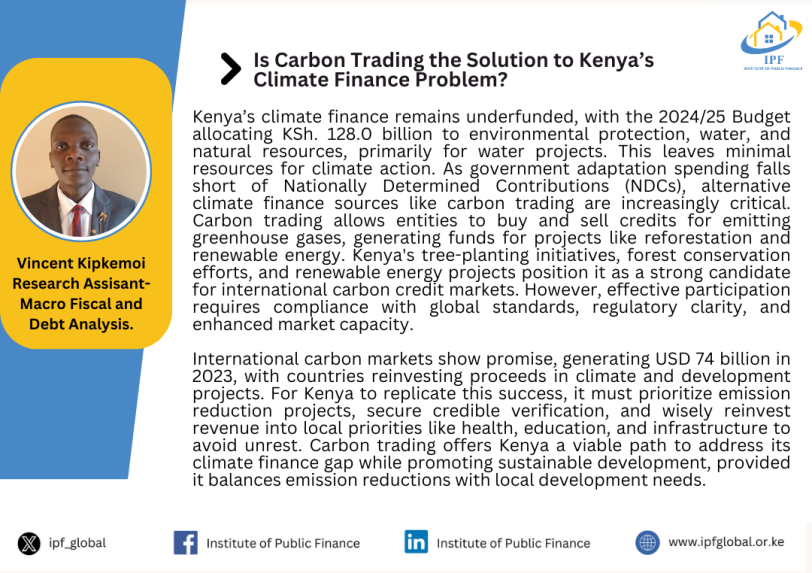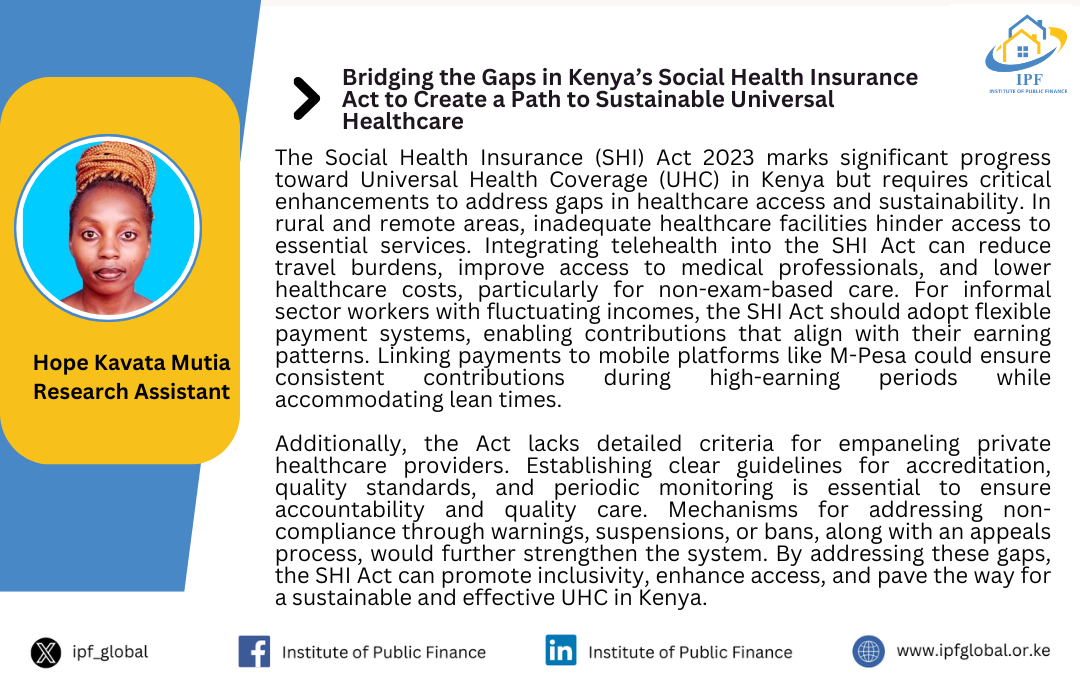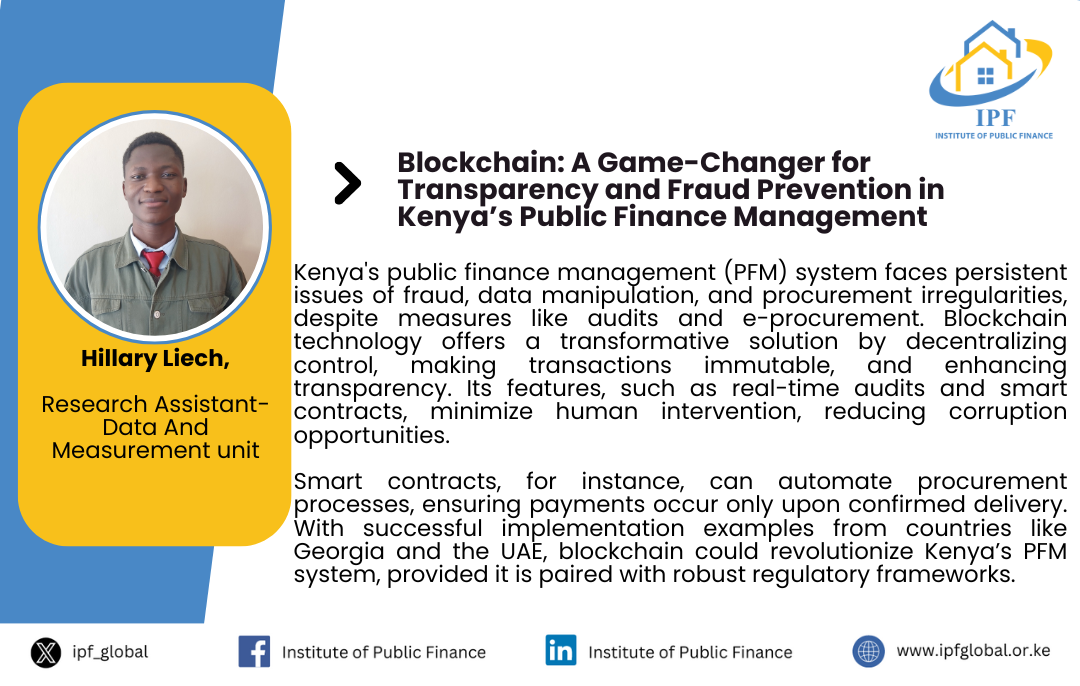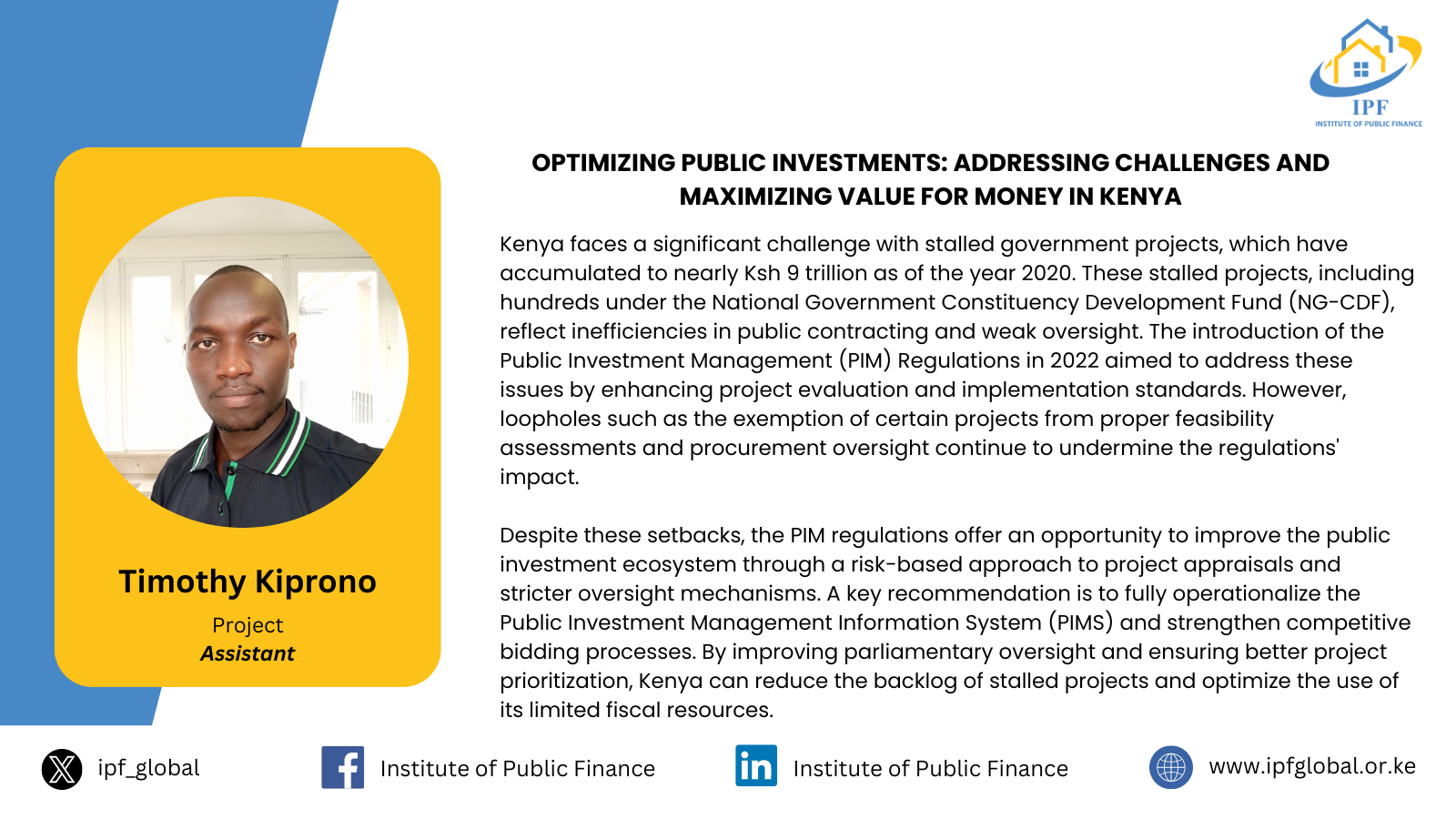Why are we focusing on this area?
The Institute would like to complement and work in synergy with other institutions in the tax space in advocating for tax reforms with the overall objective of promoting efficiency and equity in taxation. The Constitution of Kenya, 2010 gives County Governments the legislative authority to levy property taxes, but counties face numerous challenges in administering property taxes.
These challenges continue to limit the great potential in growing revenues and promoting equity in taxation. The challenges, such as outdated valuation
rolls, revenue leakages, inadequate capacity of revenue collectors, among others, highlight possible areas for collaboration between the national government and county governments including building the capacity of counties in property tax administration.
Equally, Kenya’s tax expenditures are aimed at encouraging foreign direct investment
and growth of domestic industries through tax holidays, special economic zones, and regional investment incentives. Despite their proliferation, oversight over the use of tax expenditures is inadequate and most importantly evaluation of their effectiveness in achieving their policy goal is largely non-existent. Except for some evaluation by the academia, policy makers have limited information on the effectiveness of tax
expenditures.
Evaluation of tax expenditures is particularly important for countries across Africa because domestic resource mobilization is a policy priority in the context of reduced
fiscal space. As the global economy undergoes a profound transformation driven by digitalization, it is also imperative to understand and address the unique challenges posed by taxation in the digital realm. As one of the thematic areas in the Tax Policy Unit, research on digital service taxes will analyze emerging trends in taxing the digital economy and provide evidence-based policy recommendations to inform decision-making processes.
Various actors have called for taxation of wealth with a twin objective of increasing
revenue collection and to make Kenya’s tax system more progressive. These calls have
cited unprecedented growth in private wealth relative to national wealth, even at the height of the COVID-19 pandemic. This is partly attributed to weak administrative capacity.
In addition, the political power of the elite frustrates any efforts to tax them. Illicit financial flows to tax havens have also undermined efforts to ensure that the rich bear a tax burden commensurate to their wealth. More recently, the government has itself declared its intention to tax wealth. However, wealth taxes are often not successful and require careful policy design and advocacy to endure.
What aspects of tax are we focusing on?
Our Tax research initiatives are aimed at addressing the pressing need for comprehensive tax reforms for enhanced revenue collection in
Kenya.
• Our research will review case studies of countries that have successfully introduced
wealth taxes with a view to identifying good practices.
• In the area of property taxes, we will carry out research to identify improved
administration practices that can enhance equity and efficiency in the tax system.
• On tax expenditures, the government in the National Tax Policy and the Medium-Term Revenue Strategy (MTRS) has indicated that it will be reviewing the existing tax incentives with a view to eliminate redundant tax incentives. In light of this,our research will continue to monitor government’s progress in transparency
on tax incentives, and will assess their effectiveness, efficiency, and equity.
• Finally, we explore the implications of Digital Service Tax (DST) implementation, investigating the legal and regulatory aspects of DST, examining different design options for digital service taxes, and assessing their effects on traditional concepts of tax jurisdiction.



